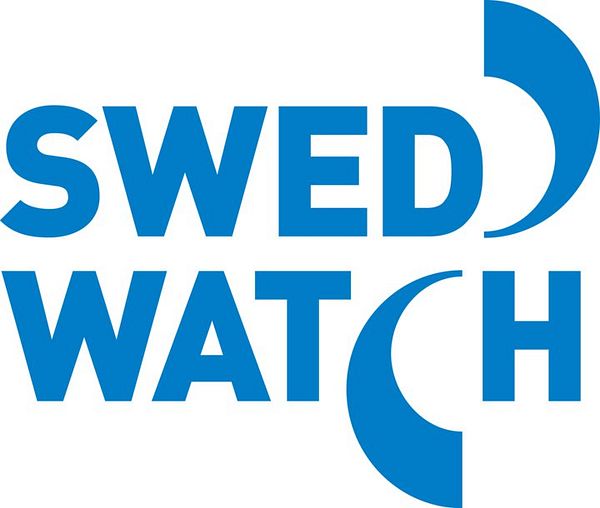Press release -
Landmark conclusion: Companies can’t ignore human rights responsibilities through mergers and acquisitions
In a major step for human rights, the Norwegian NCP found that Aker BP failed to conduct human rights due diligence (HRDD) when the company merged with Swedish oil company Lundin Energy. In its final statement, the NCP recommends Aker BP to carry out HRDD related to the transaction, including meaningful engagement with stakeholders, and that, based on this due diligence, Aker BP should, where appropriate, take a role in remediation.
In 2022 Swedish oil company Lundin Energy merged the majority of its assets with Norwegian oil company Aker BP. Through the merger, people whose human rights were impacted by the operations of Lundin Energy during the civil war in Sudan risked ending up without remedy.
- What happened in the merger was that all responsibilities for human rights impacts ended up in one company while the means to meet those responsibilities ended up in another company. But today’s decision clarifies that justice cannot be outsourced or buried in a merger, says Olof Björnsson, Programme Officer at Swedwatch who has covered the issue for several years and is the author of the report Fuel for Conflict on the responsibilities of institutional investors with shares in Lundin Energy.
In May 2022 Swedwatch and seven other NGOs filed a complaint against Aker BP and its biggest owner Aker ASA for failing to comply with the OECD guidelines for multinational enterprises. The complaints were filed with OECD’s National Contact Point in Norway and argued the two companies had failed to analyse how the acquisition of Lundin Energy's assets would affect those impacted in Sudan and their chances of receiving remedy.
Now the NCP has sided with the complainants in this regard.
-The statement reinforces Swedwatch’ s stand: corporate actors cannot sidestep their responsibilities through restructuring or mergers — especially when affected communities are left without access to justice or remedy. The statement marks a crucial precedent for victims of corporate abuse and strengthens the global push for business accountability, says Alice Blondel, Director of Swedwatch.
A landmark victory for human rights
The NCP concludes that Aker BP did not consider how the transaction would impact the right to effective remedy for those affected by Lundin operations in Sudan. While the Aker companies did carry out business-related, financial and legal due diligence, and this covered some aspects of human rights due diligence, the process did not adequately and independently address the risks of adverse impacts of the transaction on the right to effective remedy.
-This is a landmark victory for human rights. It affirms that victims of corporate abuse have the right to remedy — and that companies must take that seriously, even in complex transactions. , says Olof Björnsson.
The NCP recommends that Aker BP carries out human rights due diligence related to the transaction in line with the OECD Guidelines, including meaningful stakeholder engagement and assessment of its role in relation to the potential negative impact of the transaction on the victims’ right to an effective remedy. Based on this due diligence, Aker BP should, if or when it’s timely and appropriate, seek to take a role in remediation.
For example, Aker BP may use its leverage to encourage the business relationship to participate in processes to provide for remedy. In practice, this could entail that Aker BP seeks to engage with Lundin Energy (today renamed Orrön Energy) and its main owners to facilitate a process where possible remedial actions are explored.
A new standard for mergers and acquisitions
The ruling has the potential to set a new standard for mergers and acquisitions in OECD member countries as it determines that impacts on human rights must be considered.
In the final opinion, the NCP states that HRDD in connection with mergers and acquisitions must – when the circumstances indicate that the transaction may have other negative impacts on the human rights of those affected – have a broad scope. In this particular case, the scope should have covered the risk of negative impacts on the right to an effective remedy for the victims of Lundin Energy’s alleged contribution to war crimes in Sudan.
Regarding Aker ASA, the major shareholder in Aker BP, the NCP concludes that Aker ASA’s due diligence as an owner and investor to a large degree must have suffered from the same failures as those found in Aker BP’s due diligence. Aker ASA should have used its leverage over Aker BP to seek to prevent and mitigate the risk of negative impact on the victims’ right to remedy. The NCP concludes that this was not done.
FACTBOX
Background – a merger right after the indictment
Two former executives of the Swedish oil company Lundin Energy are currently on trial in Stockholm district court for complicity in war crimes committed by the Sudanese military and its allied militias when the company prospected for oil during the civil war in Sudan more than 20 years ago.
Shortly after the two men were indicted, Lundin Energy merged the majority of its assets with Norwegian oil company Aker. According to the merger agreement all responsibilities for the events in Sudan would remain with Lundin Energy (now renamed Orrön Energy) while all relevant financial assets would be transferred to Aker. This would mean that the means to provide remedy for anyone who was affected by the company's operations were greatly diminished.
This is why Swedwatch, together with The Civil Society Coalition on Natural Resources, Global Idé, Liech Victims Voices, Norwegian Church Aid, Norwegian People’s Aid, PAX and South Sudan Council of Churches filed a complaint in May 2022 against Aker BP and its main shareholder Aker ASA regarding the human rights implications of the merger between Aker BP and Lundin Energy - specifically how the merger would make remedy difficult by moving assets out of reach of those affected by Lundin activities in Sudan.
FACT BOX
OECD Guidelines for Multinational Enterprises
The OECD Guidelines for Multinational Enterprises are recommendations addressed by governments to multinational enterprises operating in or from adhering countries. They provide non-binding principles and standards for responsible business conduct in a global context consistent with applicable laws and internationally recognized standards. The Guidelines are the only multilaterally agreed code of responsible business conduct that governments have committed to promoting.
The National Contact Points NCPs are agencies established by governments to promote the OECD Guidelines for Multinational Enterprises, and related due diligence guidance, and to handle cases as a non-judicial grievance mechanism. To date, around 50 governments have an NCP.
The Norwegian NCP is organized as an expert body tasked with following up on Norway's obligations under the OECD Guidelines for Multinational Enterprises.
The final statement from the Norwegian NCP is attached.
Topics
Safeguarding human rights and environment in business
Swedwatch is an independent, non-profit research organization dedicated to promoting responsible business practices and empowering rights holders. We achieve this by exposing the human and environmental impacts of unsustainable business operations and fostering collaboration between stakeholders to drive meaningful change.


